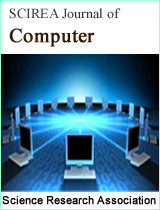How to Deduce 17 valid Non-trivial Generalized Modal Syllogisms from the Syllogism 口EA◇H-2
DOI: 10.54647/computer520447 33 Downloads 18264 Views
Author(s)
Abstract
A modern Square{Q}={Q, Q, Q, Q} is composed of the quantifier Q, its inner negation Q, outer negation Q and dual negation Q. This paper focuses on studying the generalized modal syllogisms formed by modalities and the 8 quantifiers in Square{no} and Square{at most half of the}. More specifically, this paper firstly presents a knowledge representation of the syllogism 口EA◇H-2, then proves its validity according to the truth value definitions of some categorical propositions. Finally, with the help of some reducible operations, the other 17 valid non-trivial generalized modal syllogisms can be obtained from the syllogism 口EA◇H-2. This formal study is beneficial for knowledge mining in artificial intelligence.
Keywords
generalized modal syllogisms; validity; knowledge reasoning; knowledge mining
Cite this paper
Haowei Shi,
How to Deduce 17 valid Non-trivial Generalized Modal Syllogisms from the Syllogism 口EA◇H-2
, SCIREA Journal of Computer.
Volume 10, Issue 2, April 2025 | PP. 27-36.
10.54647/computer520447
References
| [ 1 ] | L. H. Hao, The validity of generalized modal syllogisms based on the syllogism E口M◇O-1. SCIREA Journal of Mathematics, Vol. 9, No. 1, 2024a, pp.11-22. |
| [ 2 ] | F. F. Yang, and X. J. Zhang, Knowledge mining based on the generalized modal syllogism A口MI-1. SCIREA Journal of Electrical Engineering, Vol. 9, No. 2, 2024, pp.45-55. |
| [ 3 ] | H. P. Wang, and Z. L. Yuan, Knowledge reasoning for the generalized modal syllogism A口MI◇-3. SCIREA Journal of Information Science and Systems Science, Vol. 8, No. 4, 2024, pp.129-138. |
| [ 4 ] | L. H. Hao, Knowledge reasoning based on the generalized syllogism AHH-2. SCIREA Journal of Computer, Vol. 9, No. 1, 2024b, pp.1-8. |
| [ 5 ] | J. Łukasiewicz, Aristotle’s Syllogistic: From the Standpoint of Modern Formal Logic (2nd edition), Clerndon Press, Oxford, 1957. |
| [ 6 ] | L. H. Hao, Knowledge representation and knowledge reasoning based on the Aristotelian modal syllogism 口AE◇E-4. SCIREA Journal of Information Science and Systems Science, Vol. 9, No. 1, 2024c, pp.1-8. |
| [ 7 ] | J. Xu, and Y. Z. Wang, The Validity of Generalized Modal Syllogisms with the Quantifiers in Square{no} and Square{most}. International Journal of Social Science Studies, Vol. 12, No. 6, 2024, pp.42-47. |
| [ 8 ] | F. Johnson, Models for modal syllogisms. Notre Dame Journal of Formal Logic, Vol. 30, 1989, pp.271-284. |
| [ 9 ] | F. Johnson, Aristotle’s modal syllogisms. In D. M. Gabbay, and J. Woods (eds.), Handbook of the History of Logic, Amsterdam: Elsevier, Vol. I, 2004, pp.247-307. |
| [ 10 ] | A. G. Hamilton, Logic for Mathematicians. Cambridge University Press, Cambridge, 1978. |
| [ 11 ] | S. Y. Yu, and X. J. Zhang, The validity of generalized modal syllogisms with the generalized quantifiers in Square{most}. SCIREA Journal of Philosophy, Vol. 4, No. 1, 2024, pp.11-22. |

